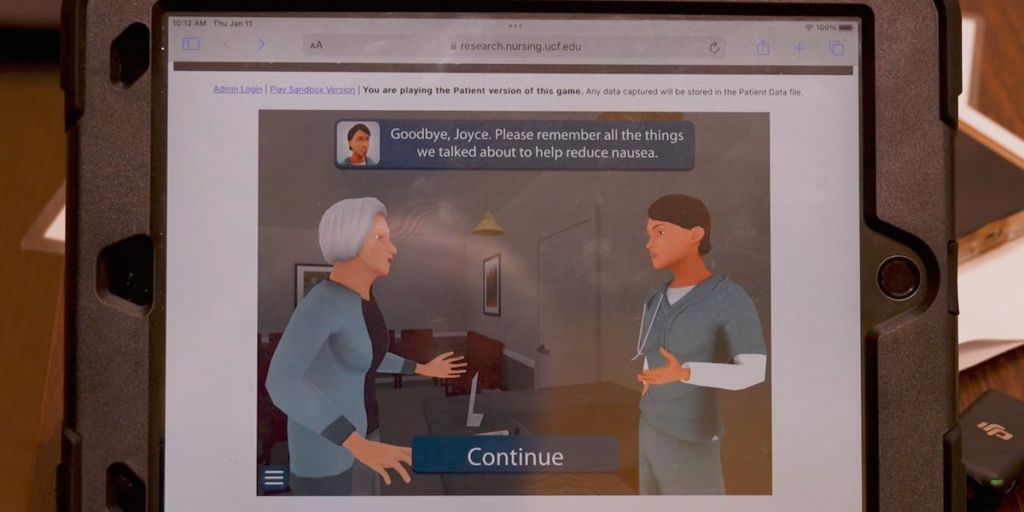ORLANDO, Fla. (Ivanhoe Newswire) – The American Cancer Society predicts that this year will be the first year in U.S. history with more than 2 million new cancer diagnoses. More than half of them are over 65 years old. Treatment can be difficult for older men and women, and even after they are discharged from the hospital, home care carries many risks, and if you don't know what to do, you may end up back in the hospital with serious complications. A silver-haired avatar could help elderly patients learn the right way to recover at home.
The paperwork, the information, the medication… it may all seem like too much.
“Typically when someone is diagnosed with cancer, it's a very overwhelming experience,” said Dr. Victoria Rosell of the UCF College of Nursing.
In her 20 years as an oncology nurse, Victoria Rosell has seen patient after patient readmitted to the hospital because they didn't follow instructions when they got home.
“The main cause of readmission is pain, and of course symptoms like nausea and vomiting,” Roselle explains.
But Professor Roselle is trying to change that with his game.
In the game, patients follow a silver-haired avatar home after being discharged from the hospital.
The choices you make in-game are the same as the ones you make at home.
“Hopefully, what they'll do when they get home is, oh, the more I do it, the better the Avatar feels, and I'll remember what I've done for the Avatar in the game from now on. I'm trying to do some of this myself at home,'' Roselle said.
Compared to younger patients, patients over 65 years of age are at higher risk for serious side effects. Dehydration and toxicity from chemotherapy, nausea, and vomiting can occur.
“We're trying to save patients time, we're trying to save money. We're trying to save the hospital system money. And we're also trying to get patients to think differently about managing their care at home,” Roselle explained.
The game takes just 15 minutes to play, but Roselle says it could save older cancer patients from losing days or weeks to the disease or having to be re-admitted to hospital to manage their symptoms. She has received a $2.5 million grant from the National Institutes of Health to fund a large, multi-center study that will follow 500 patients for six months after treatment.
Click here to report a typo.
Copyright 2024 WAFB. All rights reserved.



